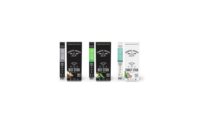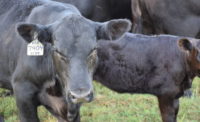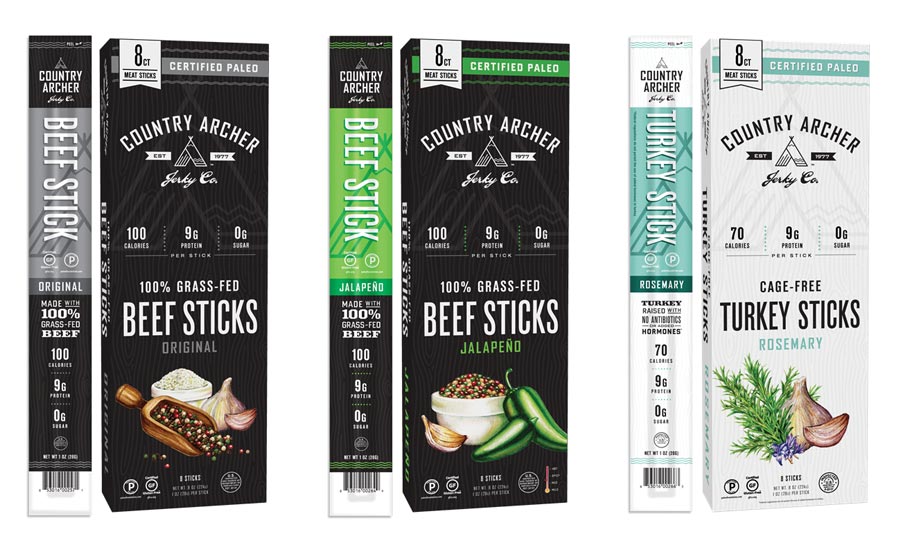Country Archer Jerky Co. hits the mark
A chance encounter between a young entrepreneur and a high-quality beef jerky resulted in one of the most recognizable brands in the meat snack market.








Typically, a trip to the Grand Canyon results in spectacular views, incredible photos and maybe a couple of souvenirs from the park’s gift shop. It does not, generally speaking, involve discovering a beef jerky that changes your business aspirations and sets you on a new career path. In fact, that jerky revelation has only happened once, but when it did, it led to the rise of one of the hottest companies in the meat snacks market.
Country Archer Jerky Co. has a history that dates back to 1977. For most of that time, it was operated by its founder out of a small kitchen in Southern California, primarily producing private-label beef jerky. It didn’t produce any products under its own name. It just happened that one of the places where its products were sold was at a roadside stand on the way to the Grand Canyon.
One of those people who found the jerky was Eugene Kang, CEO and co-founder of Country Archer. At the time, he was a senior in college, working on completing a degree in political science and trying to determine where his career would go. He and his soon-to-be business partner, Susan Kang, stopped in for a quick snack and discovered a revolutionary product instead.
“Maybe it was our naïveté at the time, but I felt like this is something we need to package and really scale up,” Eugene Kang recalls. “The product was a small, private-label product that we felt was ahead of its time. It was this better-for-you, all-natural, preservative-free, small-batch product. We were so used to the chemically-induced, preservative-laced beef jerky in gas stations that we thought, ‘Why can’t we do this better?’”
Kang knew he was onto something special with this product, as he was no stranger to beef jerky. His parents owned and operated a chain of convenience stores in California, so he’d sampled plenty. They asked the owners of the stand about the jerky, found out about the processor, and tracked him down at his San Bernardino facility.
“It turns out the owner was pushing 80, had no retirement plan, no succession plan, and really didn’t focus on his brand, Country Archer. It was just a name stuck on the side of the building. He just really loved private labeling for these small mom-and-pop roadside stands,” Kang says.
Kang and his business partner made an offer, bought the company and entered into the world of beef jerky. That was around 2011. Fast forward to today, and Country Archer operates out of a 30,000-square-foot complex that contains both a processing facility and a warehouse. Its products can be found in over 25,000 retailers nationwide, and it continues to grow that number year over year.
Country Archer focuses on all-natural meats and sources the best ingredients possible. The proteins are grass-fed beef and antibiotic-free turkey and pork. Kang likened the selling points of Country Archer to those of the microbrewery trend — consumers desired a gourmet, artisanal approach to beer, and the same approach could translate to jerky as well.
“There was a rising, macro-consumer trend of wanting more flavorful, gourmet, authentic brands that people can stand behind, rather than the old staple brands that you’d see at gas stations,” he says.
The meat snack market is one of the hottest markets in the meat industry, and Country Archer has some advantages over the newcomers to the market. For one thing, the company is a heritage brand that has a 31-year history, even if it’s only been widely available for the last four years or so. Secondly, Country Archer offers an authenticity that stems in part from having a processing facility as well.
Country Archer’s transformation from a small private labeler to a nationwide brand didn’t happen overnight. From the 2011 acquisition until the company launched branded products in late 2013, it worked to get over the steep learning curve that comes from entering the meat industry, including learning about sales and marketing, operations and working with the USDA and its suppliers. Kang says that Country Archer took an “if you build it, they will come” approach by moving into a larger facility and upgrading its processing equipment.
“In late 2013/early 2014 when we felt comfortable about our operations, meat snacks and knowledge of food safety, we really went full-throttle in launching the brand,” Kang says.
Kang went into his earliest retailer meetings with a high-quality product and a processing facility that was ready to ramp up production. The problem was that in those earliest meetings, retailers didn’t jump on board. To their way of thinking, they already had a jerky product with an original flavor and a teriyaki flavor and didn’t see the need for another brand.
“They didn’t understand the benefits of having a natural product in their stores,” he says. “I think they were so focused on what’s been there in their store for many, many years. That’s when it dawned on me that you almost needed something truly unique from their perspective. What’s unique from my perspective might not necessarily resonate with them, and that’s when we partnered up with Huy Fong Sriracha.”
At the time, sriracha was one of the hottest flavors in the food industry, with dozens of retail and restaurant brands racing to put a sriracha-flavored product on the marketplace. Huy Fong Sriracha is the most recognizable brand, with the familiar rooster on its bottle. In 2014, the company had issues with the air quality around their facility, which was located about 30 miles away from Country Archer. The sriracha plant temporarily closed, causing a shortage known as the “srirachapocalypse.” Even though Country Archer was a relatively unknown company, Kang took a chance at seeing if Huy Fong would be interested in co-branding a jerky product.
“David Tran is the founder of the company. He’s an older Asian gentleman who has built up his business over the last 20 or 30 years,” Kang explains. “I said, ‘Listen, I’m just a young Asian-American entrepreneur who’s trying to make it in this world, and it would be awesome if we could partner up with this.’”
The gamble worked. Tran agreed, with the provision that Country Archer use his recipe to make the marinade, and that he have final approval. The test batches were so successful that Tran signed off on the product, and Kang returned to those retailers who turned him down – this time with a unique product that hit on a rising trend. The retailers agreed to take on the sriracha jerky, and Kang insisted that they take on the other varieties as well. The sriracha was an instant hit, but currently, the original beef jerky variety is the company’s top-selling item.
“It goes to show you that our basic premise was true from the beginning—we knew that consumers wanted a better-for-you, natural, authentic brand that they can sort of be proud of and tout—and that’s where we are today,” Kang says.
Country Archer has worked to continually expand its meat snacks lines. At the recent NACS Show (National Association of Convenience Stores) in Las Vegas, the company introduced a Hatch Chile Beef Jerky and a Citrus Rosemary Turkey Jerky. It has also expanded into meat snack sticks and meat bars. Kang notes out that one of the first ingredients in the most popular meat stick brand is “mechanically separated chicken,” which is contrary to the current consumer trends.
“We thought that we can definitely disrupt this market,” he adds. “We wanted to come up with 100-percent grass-fed beef and antibiotic-free turkey, and utilize those two proteins that have been so good to us in jerky as pillars going into sticks. We have gotten some tremendous feedback from our retail partners.”
The meat bar category is relatively young, and Kang did not want to release a product just to have a “me-too” item on the market. While the Country Archer products are designed to have mass appeal, the collagen crafted Meat Bars are a nod to the fitness community who like handheld protein bars but may want something a little more natural than a condensed protein product.
Both the sticks and the bars are made by a co-packer, leaving Country Archer to focus its expertise on jerky. Since the company does have extensive experience in manufacturing, it is able to work closely and communicate clearly with the co-packer to make sure the standards it applies to jerky are being met with the other products.
“If we were sitting in an office building in Manhattan and were purely a marketing company, we simply wouldn’t have those same standards, because we’d rely on the co-packer to give us those standards. We’ve created the standards ourselves—we’ve built them, trialed and errored them, and we’ve passed them along to ensure the highest quality product across the board,” Kang notes.
Country Archer is making plans for its future growth, as it recently secured a $10 million investment from a private equity firm in California. Kang says that the investment will go toward growth on its operational side as well as its marketing efforts.
“As our brand continues to drastically grow, we needed to expand our efforts in reaching out to consumers on a mass level. The recent investment we secured will not only help to drive increased marketing, but it will also improve our efficiencies and cap-ex funding that will lead to increased productivity as well,” he adds.
Country Archer is a dramatically different company than it was when a college student happened across a package of beef jerky at a roadside stand, but the thing that gets Kang fired up the most is the amount of jobs he’s brought to the San Bernardino community. Between administration, production and office, the company now employs 150 people.
“As we continue to grow this business, the thing I’m going to look back on is not how many more stores we’re in, but how much consumers love our product, how many jobs we’ve provided, and ultimately how we’ve scaled from a 30,000-square-foot facility to a 200,000-square-foot facility. That’s where I’d like to be 5 years from now,” he says.
Looking for a reprint of this article?
From high-res PDFs to custom plaques, order your copy today!









